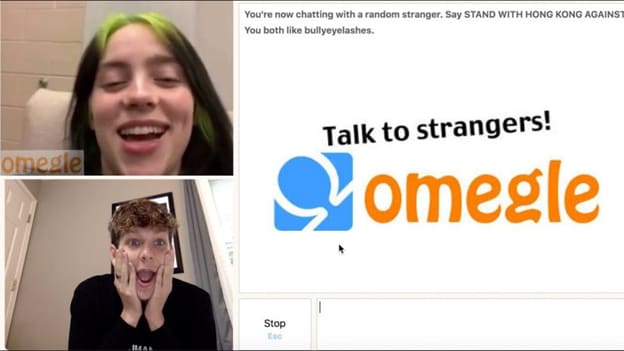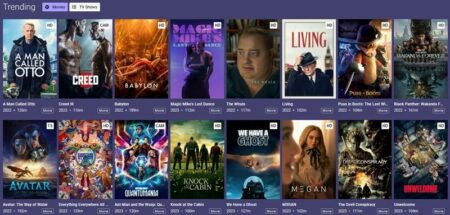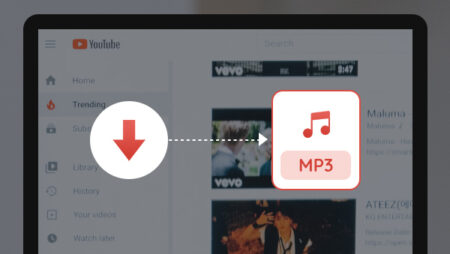Omegle is one of the most popular online video chat networks. It matches random people designated as ‘You’ and ‘Stranger’ for online communication through ‘Text,’ ‘Video,’ or both. A user may also enter their interests, and Omegle will try to match them with someone who shares their interests. Otherwise, you may meet anyone. Chats are anonymous until the person identifies themselves. It’s completely free, and no account is necessary.
There are several counterfeit applications, such as ‘Chat for Omegle,’ ‘Free Omegle Chat,’ and ‘Omeglers,’ but there is no genuine Omegle app. Although all of the sites and applications appear to have the same features and goals, only a few are affiliated with Omegle. As a result, parents and caregivers should check to see which applications their children have put on their phones and the hazards associated with each.
Who makes use of Omegle?
Omegle, like other social media platforms, has a minimum age rating of 13 years old with parental consent. Users must be 18 years old or older without parental consent. Omegle is very popular in the United States, the United Kingdom, India, and Mexico. Because many social media influencers use and write about it, it is also immensely popular among children and young people. On TikTok, for example, the #omegle hashtag has roughly 5 billion views.
Is Omegle secure?
Omegle does not appear to have a strong moderating team. It also does not need registration or age verification, making young individuals an easy target for online abuse. “Predators have been known to use Omegle, so please be careful,” says the website.
Strangers may ask children and young people for their names, ages, and location. As a result, it’s critical to talk to your youngster about sharing personal information with strangers online.
During the COVID-19 epidemic, sexually explicit movies and live broadcasts involving youngsters as young as 7 or 8 were circulated around the web, according to a BBC investigation. The BBC has subsequently notified the appropriate authorities.
According to the BBC’s research, schools, police agencies, and governments in the United Kingdom, United States, France, Norway, Canada, and Australia have issued Omegle warnings.
On Omegle, there were also investigations into online child abuse, as well as allegations of racism, extremist ideologies, fraud, and cyberbullying.
Inadequate video chat moderation
Underage users may readily access the video chat’s adult, moderated, and unmoderated options. Users will be immediately on live video and text chat after clicking the button, which sadly exposes minors to possible threats in a matter of seconds. Furthermore, video chat allows footage to be collected and broadcast without the user’s permission.
Chat options include the following:
- Adult-Anyone may view this, which contains sexually explicit material. The user merely has to confirm this by clicking a button before being transferred to another website.
- Omegle’s disclaimer states that they filter conversations and that “… moderating is not flawless.” You may still come across misbehaving folks. ” However, they do not specify how frequently or how successfully this is accomplished.
- Unmoderated chat-this option displays a warning box informing the user that they must be 18 or older, but an underage user can easily click ‘OK’ and enter. Users are more likely to run into dangerous things like online grooming, sexually explicit content, and violent content.
Anonymous texting
The text chat contains a “spy” function, which allows users to either be the “spy” and log on as a secret third party in a text conversation between two people, or they may be the “spy” and log on as a hidden third party in a text chat between two people.
The “spy” can then request that the other two users discuss a certain topic/question and observe their responses. A user can also be a participant and debate the question with another user.
A “spy” can leave without interrupting the conversation between the other two users.
Is there any parental control on Omegle?
Omegle does not have any parental restrictions, despite recommendations to urge safe platform use.
Omegle claims to monitor chats but despite the statement “video is monitored, keep it clean,” children and young people accessing this part are likely to find countless other users engaged in sexually explicit talk and activities, placing them in danger.
Even though Omegle’s disclaimer states that users may report other users or material, there are no guidelines on how to do so. There is no block or mute tool, nor is there a powerful enough mechanism for monitoring or filtering video or text conversations. Therefore, you need to install parental controls on their phone and/or your home broadband.
Parents should know about the risks of these conversations moving from Omegle to other sites or from online to offline, as well as the risks of possible in-person meetings.
Because Omegle links children with strangers of all ages, we recommend that parents limit their children’s use of the site to those over the age of 18.
Methods to keep children safe online
Having regular chats about your child’s online life, such as communicating with strangers online, is a crucial way to keep them safe online.
Set up parental controls, which include the ability to install filters, restrict specific websites, and much more. For more information, see our Parental Controls section. Please report it! If you believe a kid is a victim of internet sexual abuse, immediately notify CEOP or the police.






